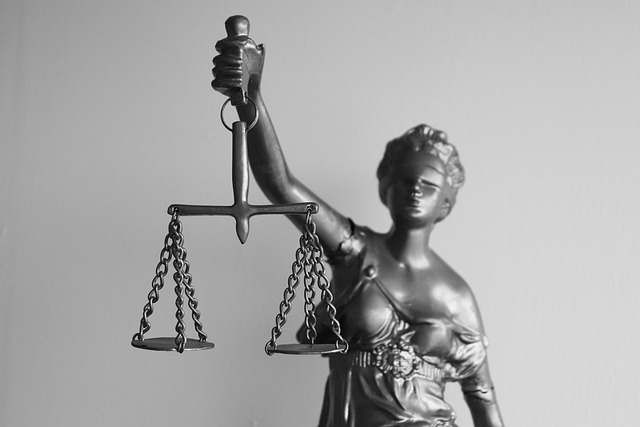The Securities and Exchange Commission (SEC) is a pivotal force in US securities law enforcement, prioritizing consumer protection and market integrity. Through comprehensive investigations and legal actions, including Consumer Protection Suits, the SEC deters fraud, white-collar crime, and unethical business practices. They enforce laws against deceptive marketing, false advertising, and complex financial schemes, ensuring ethical standards and protecting consumers. Notable suits influence corporate behavior, promote transparency, and shape ethical practices in a complex regulatory landscape, ultimately fostering market trust.
“Unraveling Consumer Protection Suits: A Comprehensive Guide explores the intricate world of legal safeguards for consumers. This article offers an in-depth look at how consumer protection suits hold businesses accountable, ensuring fair practices. We delve into the critical role of regulatory bodies, particularly the SEC in securities law enforcement, and their impact on preventing misconduct. From understanding common violations to deciphering the legal process, this guide equips readers with knowledge about these cases’ significance and the strategies employed to safeguard consumer rights.”
- Understanding Consumer Protection Suits: A Comprehensive Overview
- The Role of the SEC in Securities Law Enforcement
- Common Types of Misconduct and Violations
- Legal Process and Strategies for Consumer Protection Cases
- Impact and Prevention: Lessons Learned from Notable Cases
Understanding Consumer Protection Suits: A Comprehensive Overview

Consumer Protection Suits play a pivotal role in safeguarding individuals from fraudulent and unfair business practices. These legal actions are designed to enforce consumer rights, ensuring companies adhere to ethical standards in their dealings with customers. At the forefront of this enforcement is the Securities and Exchange Commission (SEC), a key player in securities law enforcement. The SEC’s mandate extends beyond traditional securities regulations, encompassing a wide range of consumer protection measures.
These suits are not merely about recovering financial losses; they serve as deterrents, sending a strong message to businesses across the country that white-collar crimes will not be tolerated. Through these actions, the SEC aims for complete dismissal of all charges against wrongdoers, demonstrating the agency’s commitment to upholding justice while providing a safety net for consumers in the complex world of business transactions.
The Role of the SEC in Securities Law Enforcement

The Securities and Exchange Commission (SEC) plays a pivotal role in enforcing securities laws in the United States. Its primary mission is to protect investors, maintain fair and orderly markets, and facilitate capital formation. The SEC achieves this by conducting thorough investigations, issuing regulations, and bringing legal actions against entities and individuals found to have violated securities laws. This regulatory body has extensive powers, including the authority to issue subpoenas, conduct inspections, and impose penalties on violators.
The SEC’s enforcement efforts are crucial in upholding the integrity of financial markets. It targets a wide range of offenses, from accounting fraud to insider trading, ensuring that corporations and individuals adhere to strict legal standards. By deterring misconduct through its general criminal defense strategies, the SEC helps maintain public trust in the market system, ultimately fostering a more stable economic environment for both corporate and individual clients.
Common Types of Misconduct and Violations

In consumer protection suits, several types of misconduct and violations often come to light. These include deceptive marketing practices, false advertising, unfair pricing, and product defects that pose risks to consumers’ safety. Such transgressions can range from simple misrepresentations to complex schemes designed for financial gain, often involving white collar and economic crimes. The Securities and Exchange Commission (SEC) plays a crucial role in securities law enforcement, monitoring and penalizing companies that engage in these illicit activities, particularly those with an impact across the country.
The SEC’s intervention is significant in cases where corporations employ sophisticated strategies to manipulate markets or mislead investors. These white collar defenses often involve intricate financial planning and elaborate schemes, making them challenging to uncover. By leveraging its regulatory powers, the SEC not only ensures compliance with securities laws but also contributes to maintaining the integrity of the nation’s economic landscape. This proactive approach helps safeguard consumers and investors alike from potential harm caused by unethical business practices.
Legal Process and Strategies for Consumer Protection Cases

The legal process for Consumer Protection suits involves a series of intricate steps designed to ensure fairness and justice for aggrieved parties. It begins with filing a complaint, often with regulatory bodies like the Securities and Exchange Commission (SEC) in cases involving SECurities Law Enforcement. The SEC plays a pivotal role in protecting consumers from fraudulent practices in the financial markets, employing both investigatory and prosecutorial powers. Once filed, the case navigates through pre-trial hearings, discovery processes, and legal arguments before reaching a trial or settlement.
Strategizing for these cases requires a comprehensive approach. Legal teams must carefully analyze the facts, identify relevant laws, and build compelling narratives to support their clients’ claims. A successful defense strategy in white collar cases, across the country or globally, often involves challenging the prosecution’s evidence, raising legal defenses, and presenting winning challenging defense verdicts that protect the interests of the accused while upholding the integrity of the justice system.
Impact and Prevention: Lessons Learned from Notable Cases

Notable consumer protection suits have left an indelible mark on business practices, shaping corporate conduct and emphasizing the importance of ethical standards. These cases not only serve as a reminder of potential consequences but also provide valuable lessons for companies to avoid future legal pitfalls. One key player in this domain is the Securities and Exchange Commission (SEC), which plays a pivotal role in securities law enforcement. By examining high-profile incidents, the SEC has established guidelines for corporate responsibility, ensuring that businesses prioritize consumer welfare.
Lessons learned from these cases highlight the significance of transparency, accurate disclosures, and robust internal controls. Companies must implement stringent measures to safeguard consumer interests, thereby avoiding legal indictments and fostering trust in the market. The impact extends beyond financial penalties; it shapes corporate culture, encourages philanthropy within political communities, and promotes ethical practices in white-collar defense strategies.
Consumer protection suits play a vital role in safeguarding individuals from unfair practices, especially in the complex realm of securities trading. The article has explored various aspects, from comprehending these legal actions to examining the crucial Role of the SEC in Securities Law Enforcement. By understanding common misconduct, the legal process, and notable cases, we can foster a more informed approach to protection. These suits not only offer justice but also serve as a symphony of prevention, highlighting the importance of staying vigilant against deceptive strategies.






